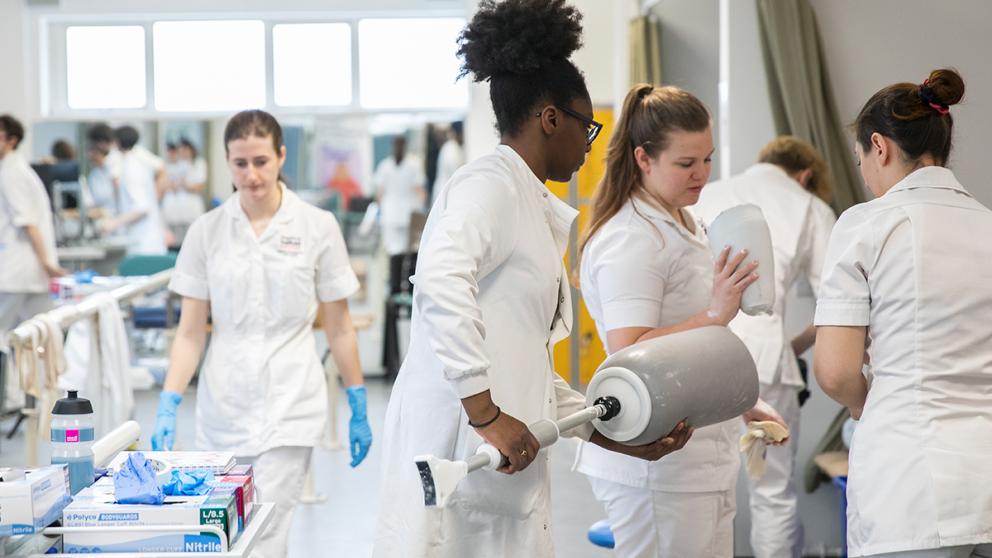About
The UK’s leading academic centres of Prosthetics and Orthotics excellence, (University of Salford, Imperial College London, the University of Southampton, and the University of Strathclyde), globally renowned for their expertise in this sector have been funded for 8 years from the prestigious UK’s Engineering and Physical Sciences Research Council to produce the next generation of highly skilled researchers who can help deliver technology and service innovations.
The PhD students have a wide range of academic backgrounds and come from a diverse range of countries including Cambodia, Nigeria and Tanzania. These students are immersed in authentic real-world academic, industry and clinical experiences, working directly with service users and future employers right from the outset. Our training enables students to work across the continuum of skills required in the sector, understanding how high-quality and interdisciplinary science and engineering research can improve the everyday lives of people across the globe. This presents a tremendous opportunity for key industrial partners to be involved and drive mentorship into real-life issues and future products, and help create our future innovators and leaders.
Did you know?
- 80-90% of prosthetic and orthotic users do not have access to appropriate services and devices (World Health Organisation 2018).
There is a wide range of health problems that require prosthetic and orthotic devices and services:
- Globally, 1.2 million people each year experience a major amputation due to trauma, the vast majority are of working age, with average age in some areas being 35 years of age.
- In the UK a record high of 25,527 diabetes-related major/minor amputations occurred between 2013-2016 (Diabetes UK 2017), and many of these will require a prosthetic limb.
- There are 1.2 million stroke survivors, the UK's leading cause of disability and many use orthoses to support walking and use of hands (Stroke Association 2017).
- There will be 6.5 million people in the UK with knee arthritis by 2020 and 2.6 million of these will be of working-age . Many could benefit from specialist orthoses (Arthritis Research UK, 2014)
- Some 400,000 people in the UK have rheumatoid arthritis and rely upon orthoses to protect there upper and lower limb joints
- 30,000 children have cerebral palsy and use orthoses to help them walk (Arthritis Research UK, 2014).
The EPSRC Centre for Doctoral Training in Prosthetics and Orthotics aims to address these important health care needs, producing a new generation of highly skilled researchers who can help deliver technology and service innovations needed to meet the aspirations of users, and the industry and third sector agencies supporting them.
Students study over 4 years at one of either the University of Salford, Imperial College London, University of Strathclyde or the University of Southampton. Students are immersed in authentic real-world academic, industry and clinical experiences, working directly with users and future employers from the outset.
Staff, students and partners will be excepted to commit to our EDI mission: to create an inspirational, inclusive learning, research and working environment, celebrating the diversity of our community in our everyday conversation.

